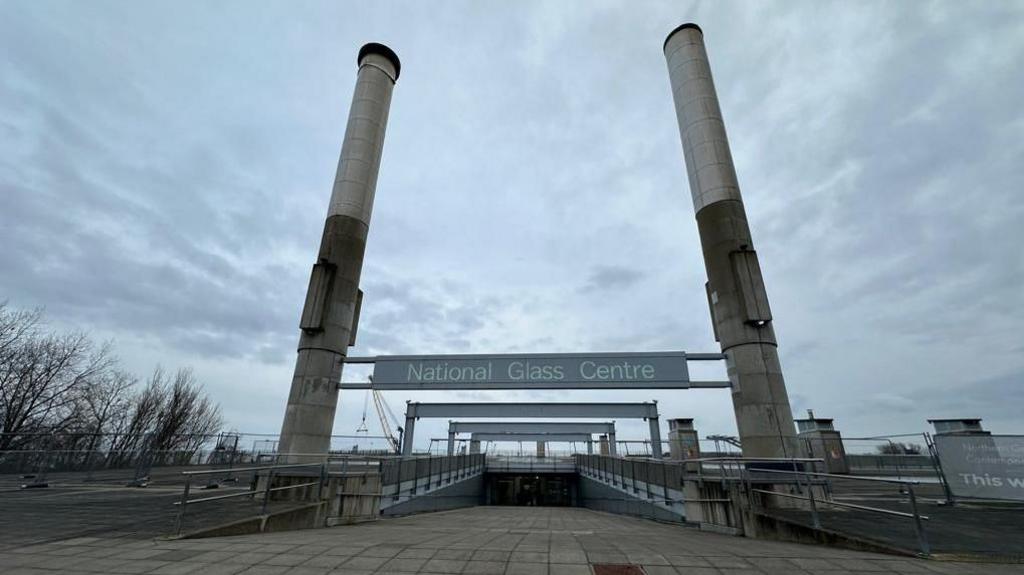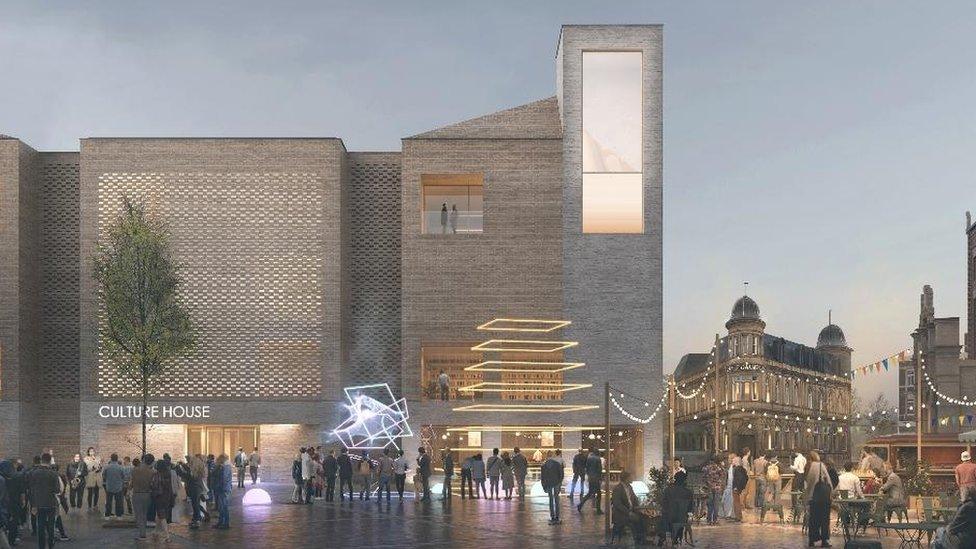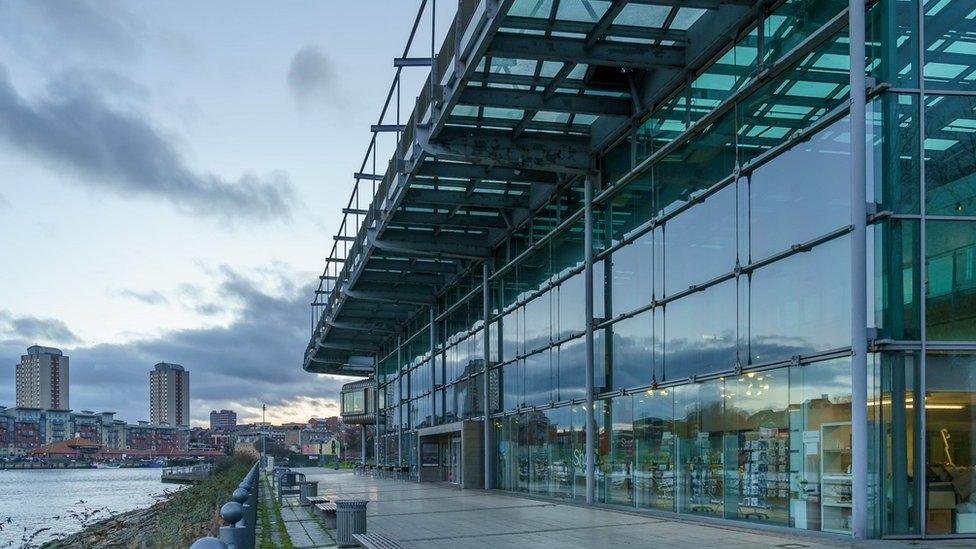Bid to buy National Glass Centre at risk of closure

More than 33,000 have signed Jo Howell's petition to save the venue
- Published
The closure of a national glass-making venue and cultural attraction could be prevented if the university which owns it agrees to sell, campaigners say.
Sunderland's National Glass Centre is set to be shut down after plans to relocate it - and scrap its glass and ceramics courses - by 2026 were announced last year.
Jo Howell, who is leading a campaign to halt the closure, has urged bosses at the University of Sunderland to "enter negotiations" on how the venue might be sold to the community.
The university's Andrea Walters told the BBC it had kept the site open for many years but could not meet the £45m needed for significant repairs to the glass and steel riverside building.
The centre, which opened in 1998 after receiving substantial lottery funding, not only provides installation spaces and glass-blowing facilities, it also houses the Northern Gallery for Contemporary Art.
It has undergone some repairs previously, but over the past five years, the public have been banned from accessing its once flagship glass roof and its riverside entrance remains cordoned off.
The campaign group claims the university, which took over the ownership and management of the centre in 2010, "has not taken sufficient care or maintenance" of the building.

The glass roof has been off-limits to visitors for five years
"What we’d like to say to Sunderland University is come and meet us at the table," said Ms Howell, who runs the Save the National Glass Centre campaign.
"We think that we have some fantastic solutions that don’t involve losing the talent and the prestige that we’ve got here.
"We would like to enter negotiations to buy it back, or to take it back for the community, which might save the university a lot of money in terms of demolition."
Campaigners are in the early stages of forming a non-profit charitable community benefit society with heritage organisations, which they said could allow it to assume responsibility for the building, if the university agrees.
'Cultural vandalism'
The campaign group maintains more than 33,000 people from 72 countries have signed the petition urging university chiefs to reverse their plans.
Ms Howell said local businesses, artists and glass-makers had already been impacted by the proposed closure.
She said they were contending with both a loss of trade and the inability to hire creative talent previously drawn to the city because of the facility.
"It's not only a tragedy, but cultural vandalism”.

Jessica Lunniss said she found out the course was being cancelled on social media
Jessica Lunniss, who lives in Spain, had been due to start a new life in Sunderland after being accepted on a university course at the centre.
She later learnt, on social media, that the course would not continue after 2026.
"I find it a completely baffling decision that they are going to stop the course completely without trying to find an alternative.
“I want them [Sunderland University] to think about what their duty is as a public institution, as an educational institution... it's one of the main tourist attractions there."
Ms Lunniss, who faced being unable to complete the full three-year undergraduate course, has since accepted a shorter postgraduate place - which will finish before the venue's proposed closure.

Andrea Walters said the university had spent millions keeping the venue open
The university has said it would need between £14m and £45m in investment to tackle the broad range of "structural-related issues", including repairs to the glass roof.
Chief operating officer Andrea Walters said she would meet with campaigners but said any decision to sell remains the university’s.
She said: "There’s always a sense of sadness when anything has to change or come to an end.
"The university took ownership in 2010 and has kept it open a number of years for the benefit of many people, but we have to look to the future."
Ms Walters said it was spending about £1.7m per year to subsidise the venue and keep the building open for public use.
She refuted claims it was not properly maintained, but said it was "at the point" where they could not justify "spending tens of millions of pounds" on repairs.
About 90% of the university's income comes from tuition fees and it was compelled to invest in facilities that "benefit the vast majority of our students," she added.
Ms Walters said that the university had "taken all steps" to ensure it communicated the decision to close courses at the National Glass Centre beyond 2026 to new and future students.
She added the university was actively working to relocate some of the current activities to new homes, including the city's new Culture House due to open in 2025.
Follow BBC Sunderland on X (formerly Twitter), external, Facebook, external and Instagram, external. Send your story ideas to northeastandcumbria@bbc.co.uk.
- Published26 March 2024

- Published9 February 2024

- Published12 January 2023
